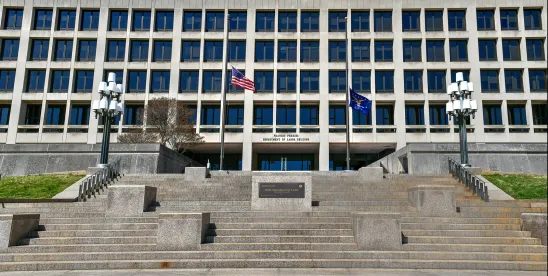On September 11, 2024, the U.S. Court of Appeals for the Fifth Circuit upheld the U.S. Department of Labor’s (DOL) authority to use a salary basis to define its white-collar overtime exemptions.
Quick Hits
- The Fifth Circuit upheld the authority of the DOL to include a salary basis in the test in defining the white collar overtime exemptions.
- The ruling is a win for the DOL, which is currently defending its latest increase to the minimum salary thresholds for the white-collar exemptions.
The Fifth Circuit, in Mayfield v. U.S. Department of Labor, held that a 2019 DOL rule, which sought to raise the minimum salary requirement for the so-called white collar or executive, administrative, or professional (EAP) employee exemptions to the Fair Labor Standards Act (FLSA), “fell within the [DOL’s] explicitly delegated authority to define and delimit the terms of the Exemption.”
The ruling is a significant win for the DOL as it defends its new April 2024 rule to further increase the minimum salary requirement for the EAP exemptions in similar legal challenges by business groups. The groups argue that the DOL rule exceeds the agency’s statutory authority because under the new rule, employees’ EAP status turns on their salary, not their job duties.
Minimum Salary Requirement
The 2019 DOL rule raised the required minimum weekly salary to qualify for the EAP exemptions by more than 50 percent, from $455 to $684 per week. Robert Mayfield, who owns thirteen fast-food restaurants in Austin, Texas, challenged the rule, arguing that the DOL has always lacked authority to set a minimum salary level for the EAP exemptions.
However, a Fifth Circuit panel disagreed. The panel found that a minimum salary requirement is “consistent with DOL’s statutorily conferred authority,” both as a defining “what it means to work in an [EAP] capacity” and as delimiting the scope of the EAP exemption.
The panel further sided with the DOL in noting that the inclusion of the word “executive” in the FLSA as part of the exemption connotes a “status of level for which salary may be a reasonable proxy,” hence it is frequently referred to as the “white collar exemption.”
“Distinctions based on salary level are also consistent with the FLSA’s broader structure, which sets out a series of salary protections for workers that common sense indicates are unnecessary for highly paid employees,” the panel stated in its decision.
Agency Deference
The Fifth Circuit panel further addressed the Supreme Court’s June 2024 decision in Loper Bright Enterprises v. Raimondo, which held that courts must exercise independent judgment in deciding whether an agency acted within its statutory authority. The Fifth Circuit examined whether the DOL should be afforded so-called Skidmore deference, which allows a court to determine the appropriate level of deference based on the agency’s support of its action.
“We need not address that issue here because DOL’s interpretation of the statute is ‘best’ based on traditional tools of statutory interpretation and without reliance on deference of any kind,” the panel stated.
To the extent that Skidmore deference is in force, the panel said it applies to the 2019 DOL overtime rule: “The DOL has consistently issued minimum salary rules for over eighty years. Though the specific dollar value required has varied, DOL’s position that it has the authority to promulgate such a rule has been consistent. Furthermore, it began doing so immediately after the FLSA was passed.”
2024 DOL Rule
The Fifth Circuit ruling in Mayfield comes after a federal judge in the Eastern District of Texas granted a preliminary injunction blocking the 2024 DOL overtime rule as it applied to the State of Texas as an employer. The judge found that challengers were likely to succeed in showing that the minimum salary requirement exceeded the DOL’s authority, relying on the Loper Bright decision. That case, and another case challenging the rule in the Western District Texas, are currently in the midst of summary judgment briefing that will address the ongoing viability of the rule on the merits.
The 2024 DOL rule raised the minimum weekly salary to qualify for the EAP exemption from $684 per week to $844 per week, or the equivalent salary of $43,888 per year, on July 1, 2024. The rule then called for the minimum salary to increase to $1,128 per week, the equivalent of a $58,656 annual salary, on January 1, 2025. Under the rule, that threshold would increase every three years based on up-to-date wage data.
Key Takeaways
The Fifth Circuit ruling in Mayfield backs the DOL in its attempts to set minimum salary requirements for its white-collar overtime exemptions despite the FLSA not explicitly calling for the DOL to set such a requirement. The minimum salary increases pushed by the DOL pose significant compliance challenges for employers in setting employee compensation structures. In total, the 2024 rule is expected to make four million employees previously eligible for the exemption no longer eligible and, therefore, entitled to overtime compensation under the FLSA.





 />i
/>i
